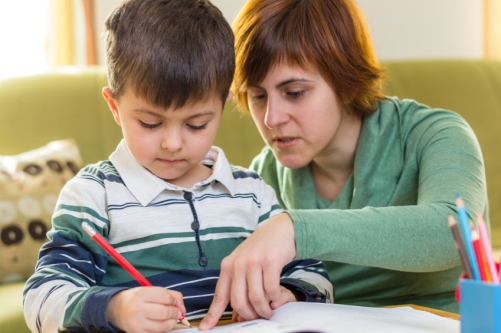
In The New York Times article, “But I Want to Do Your Homework,” author Judith Newman describes how she was driven, over her 12-year-old son’s objections, to help him ace his literature essay, only to earn a dismal grade. Her admission may sound familiar to many well-intentioned parents who believe they are doing what’s best for their child’s long-term success. Unfortunately, that’s not the case as Newman points out:
“Sociologists at the University of Texas at Austin and Duke University assessed the effect of more than 60 kinds of parental involvement on academic achievement. Read it and weep, helicopter parents: Across age, race, gender and socioeconomic status, most help had neither a positive or negative effect, and many kinds drove down a kid’s test scores and grades. One of the biggest culprits? Homework help.”
It’s not a crime for parents with talented kids to envision them accumulating straight A’s and academic awards on their way to reaching their full potential. However, knowing that it’s okay to be wrong gives children the permission they need to take the kinds of intellectual risks required in order to achieve great things, as Newman learned:
“When I confessed my sins to Michael Goldspiel, my son’s beloved assistant principal … he summed up the problem better than I could. “Being wrong is part of the process of understanding,” he said. “Going out on a limb, being willing to take a chance, is a critical skill not just for homework, but for life.” He couldn’t be more correct.”









It is definitely counterproductive for a parent to do the homework for a student. It must be recognized however that teachers are not the only one capable of teaching. A parent or other person is often just as capable of conveying an idea to a student as the teacher.